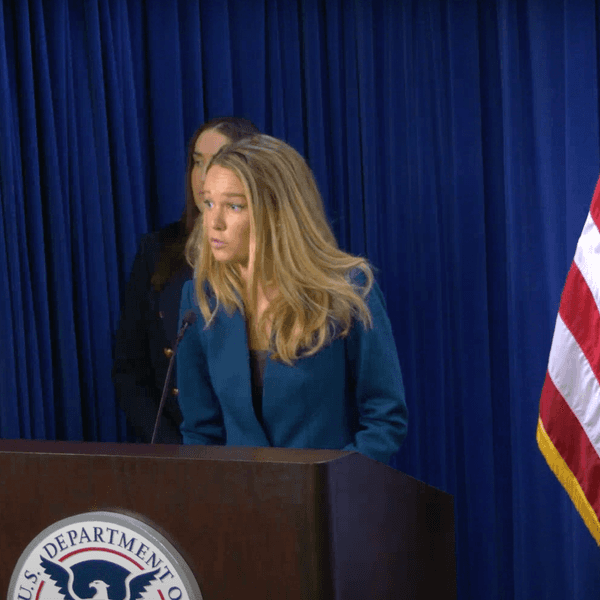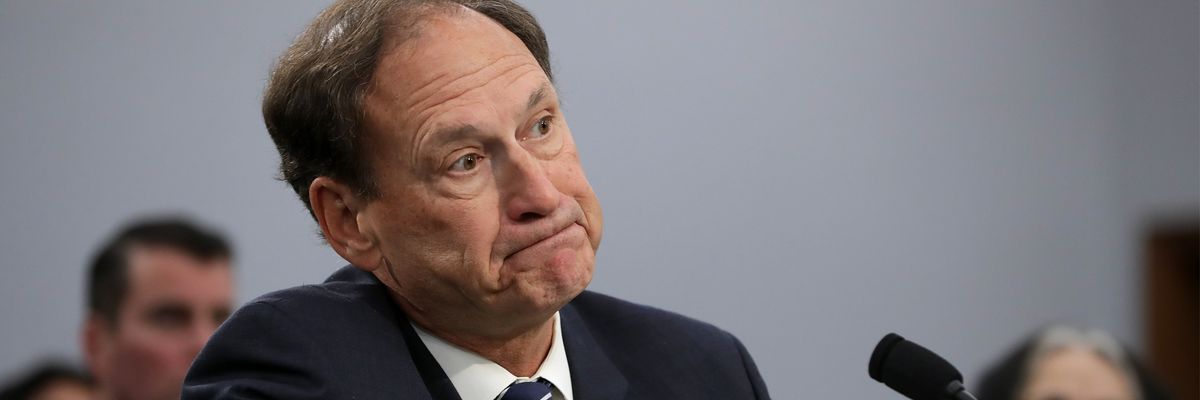I’m no fan of secret recordings designed to entrap public officials into saying things they’d rather not have the public hear, but Justice Samuel Alito’s remarks to filmmaker Lauren Windsor at the Supreme Court Historical Society dinner on June 3 — released Monday — confirm everything I assumed about Alito’s approach to the law.
After Windsor told Alito that, as a Catholic, she couldn’t see herself getting along with liberals in the way that needs to happen for the polarization to end, and that the Supreme Court should be about “winning,” Alito responded:
“I think you’re probably right. On one side or the other — one side or the other is going to win. I don’t know. I mean, there can be a way of working — a way of living together peacefully, but it’s difficult, you know, because there are differences on fundamental things that really can’t be compromised. They really can’t be compromised. So it’s not like you are going to split the difference.”
When Windsor said people must fight to return our country to a “place of godliness,” Alito said, “I agree with you. I agree with you.”
As you know, Alito wrote the opinion for the Supreme Court in Dobbs v. Jackson Women’s Health Organization, issued June 24, 2022, which overruled the court’s 1973 decision in Roe v. Wade that established a woman’s right to an abortion.
Alito’s secretly recorded remarks about his true beliefs will come as no surprise to anyone.
Alito’s opinion began by noting that “Abortion presents a profound moral issue on which Americans hold sharply conflicting views,” and then went on to hold that “The Constitution makes no reference to abortion, and no such right is implicitly protected by any constitutional provision, including the one on which the defenders of Roe and Casey now chiefly rely—the Due Process Clause of the Fourteenth Amendment. That provision has been held to guarantee some rights that are not mentioned in the Constitution, but … the right to abortion does not fall within this category.”
Alito spent the next 75 pages (including 69 footnotes) seeking to justify his decision. But not once did he admit that his personal religious convictions influenced him. Nowhere did he say that America should be a place of godliness. At no point did he convey his belief that there is no room for compromise on such a fundamental moral issue.
Alito’s secretly recorded remarks about his true beliefs will come as no surprise to anyone. The remarks signaling his religious bias are like the flags flown in front of his houses signaling his political partisanship.
But what is lost in these revelations is the naive hope that justices of the Supreme Court put reason over personal bias, logic over religious preference, and public duty over partisanship. This hope is invaluable in maintaining public confidence in the Supreme Court.
The other cynical consequence of the secret recording of Alito’s remarks is to besmirch the legitimate roles played by journalists and investigative reporters. Windsor posed as a conservative to bait justices into saying things they would otherwise never say in public and secretly record them. Windsor later said she felt justified in doing so because the court is “shrouded in secrecy, and they’re refusing to submit to any accountability in the face of overwhelming evidence of serious ethics breaches.”
She is right, but it is still a shame we have come to this.
(The recordings were published by Rolling Stone and Windsor’s activist site The Undercurrent and on X.)




